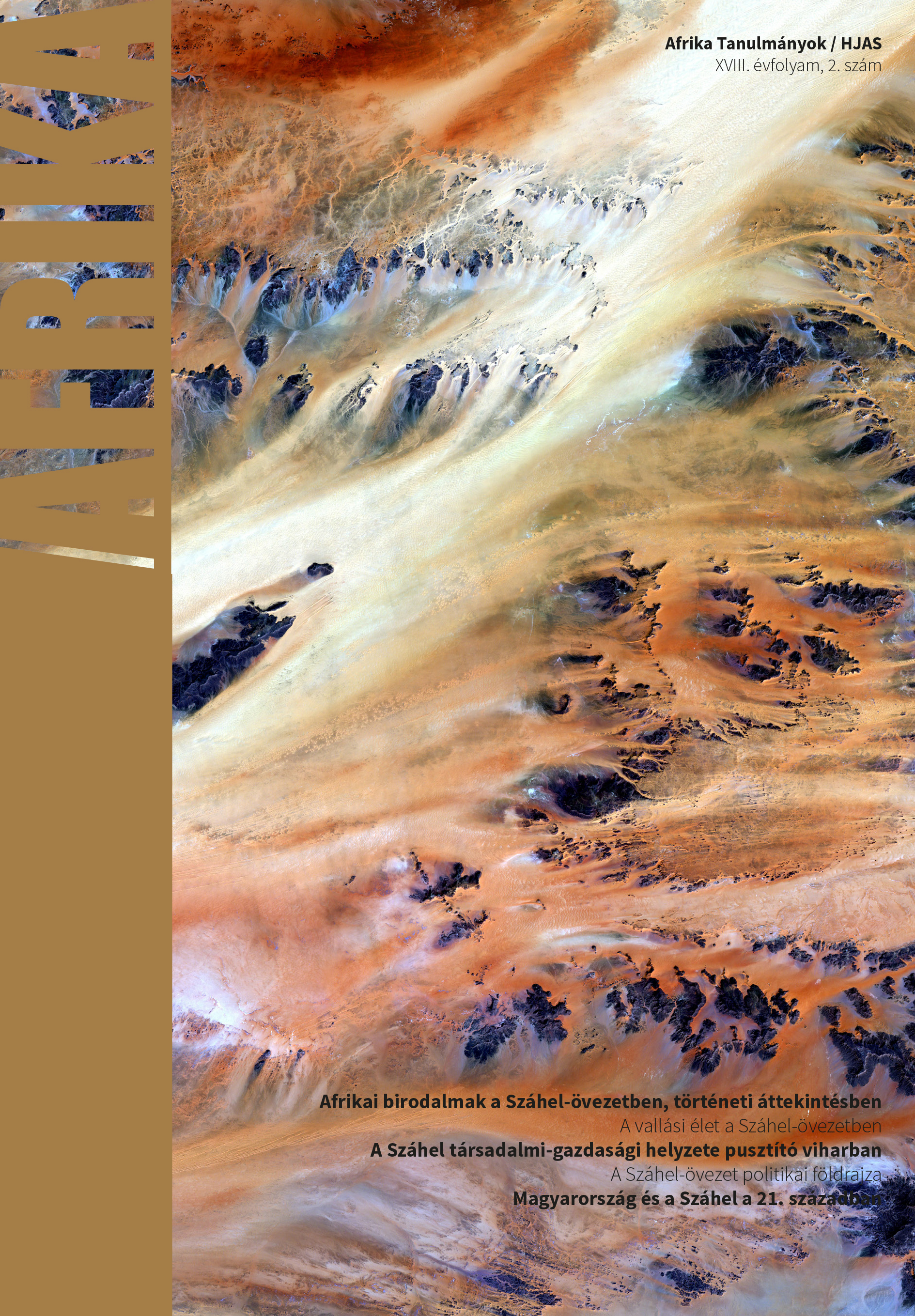Political geography of the Sahel
DOI:
https://doi.org/10.15170/AT.2023.18.2.4Keywords:
Sahel Alliance, coup belt, terrorism, weak statesAbstract
The Sahel region serves as a critical geopolitical zone due to its unique climatic, cultural, and political landscape. In recent years, this semi-arid region has garnered significant attention from international actors, primarily driven by concerns over migration, terrorism, and regional instability. This study examines the complex political geography of the Sahel, focusing on the historical context of colonization and its lasting impacts on state formation and governance. It explores the multifaceted definitions of the Sahel, from geographical to political, and how these definitions influence international policy and intervention. Furthermore, the study delves into the region's socio-economic challenges, exacerbated by a legacy of imperfect decolonization. By analyzing the intersections of history, politics, and international relations, this paper provides a comprehensive overview of the Sahel's ongoing struggles and the global implications of its future trajectory.Downloads
Published
2024-12-03
How to Cite
Vörös, Z. (2024). Political geography of the Sahel. Hungarian Journal of African Studies Afrika Tanulmányok, 18(2), 49–70. https://doi.org/10.15170/AT.2023.18.2.4
Issue
Section
Articles
License

This work is licensed under a Creative Commons Attribution-NonCommercial-NoDerivatives 4.0 International License.
















